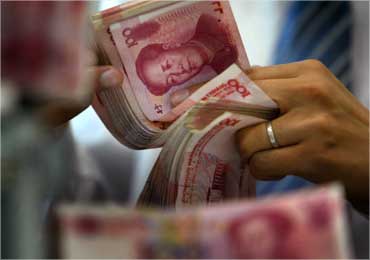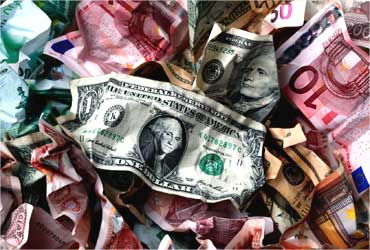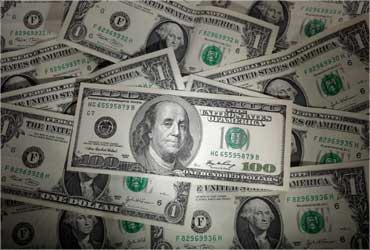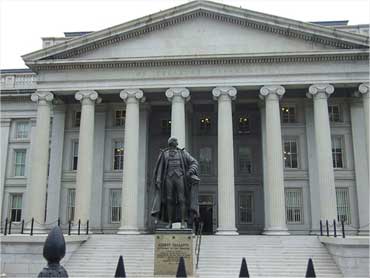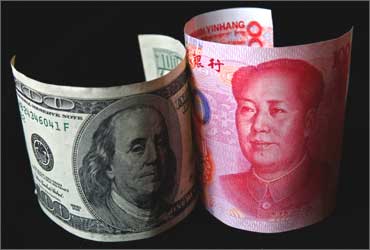 | « Back to article | Print this article |
US to push China to let yuan strengthen faster
The Obama Administration will push Beijing to let the yuan strengthen faster at next week's US-China Strategic and Economic Dialogue, as well as call for implementation of an agreement on intellectual property rights, a top US official said.
The US will also try to persuade Beijing to make it easier for foreigners to make portfolio investments in China.
"Next week, we are going to press China to let its exchange rate adjust at a faster pace to correct its still substantial undervaluation," said David Loevinger, the senior coordinator and executive secretary for China and the Strategic and Economic Dialogue.
"We're going to press China to implement the important agreements achieved between President Hu and President Obama on protecting intellectual property rights in China and delinking government procurement from innovation policies," he told reporters at a news conference in Washington.
Click on NEXT to read more...
US to push China to let yuan strengthen faster
"We're going to encourage China to move more quickly in lifting the ceiling on interest rates, on bank deposits in order to put more money into Chinese consumers' pockets.
"We're going to press them to make it easier for foreigners to make portfolio investments in China, and for Chinese to make portfolio investments abroad," he said.
"We are going to encourage them to provide more opportunities for foreign financial services firms so that they can play a greater role in helping generate the kinds of financial products that Chinese households need to meet their financial goals and ensure against life's risks and to help Chinese companies -- particularly small and medium-sized enterprises -- grow their business," Loevinger said.
Click on NEXT to read more...
US to push China to let yuan strengthen faster
Established in 2009 by US President Barack Obama and his Chinese counterpart Hu Jintao, the third round of the Strategic and Economic Dialogue will be led by Secretary of State Hillary Clinton and the Treasury Secretary Geithner on the US side; and Vice Premier Wang Qishan and State Councilor Dai Bingguo on the Chinese side.
The objective of the Strategic and Economic Dialogue is to bring together the right people at the right level across both governments to talk about, engage and make progress on issues of concern to both countries.
"The growing importance of our bilateral/economic relationship is reflected by the senior-level representation that we're going to see at our meetings next week in the economic track and that's what I'm going to focus my remarks on," he said.
Click on NEXT to read more...
US to push China to let yuan strengthen faster
The dialogue will have 16 US government agency heads representing the US delegation, including the Fed Chairman, Commerce Secretary, Labor Secretary and Security and Exchange Commission Chairman.
There will be about 20 Chinese agencies on the economic side represented, eight at the agency head level, including the Finance Minister, Central Bank Governor, Minister of Science and Technology and Commerce Minister.
Loevinger said since the beginning of this Strategic and Economic Dialogue, there has been improvement in US-China ties.
Click on NEXT to read more...
US to push China to let yuan strengthen faster
"Eighteen months ago, China's exchange rate was frozen. Today, it's moving. And since last June, the exchange rate has appreciated by about 5 per cent against the US dollar and at an annual rate of about 10 per cent when you take into account China's higher inflation rate," he said.
"Eighteen months ago, China was proposing to promote domestic innovation in ways that threatened to cut off US companies and US products from China's large and rapidly growing government procurement market.
"Now, we're making progress in removing these discriminatory practices," the Treasury official said.
